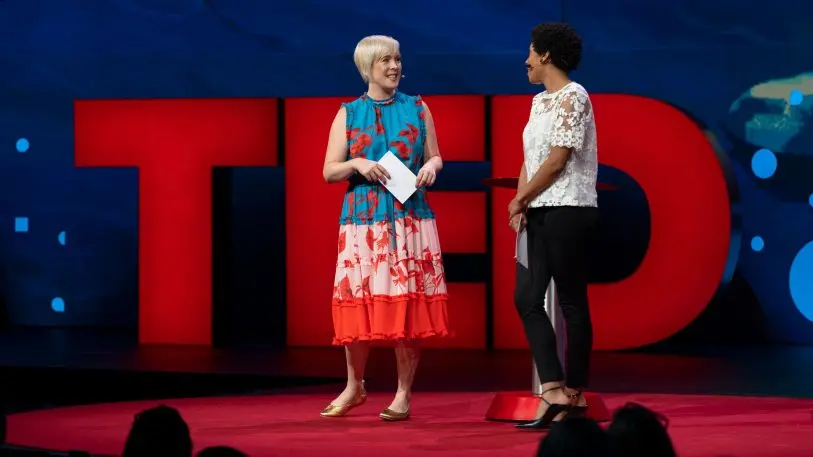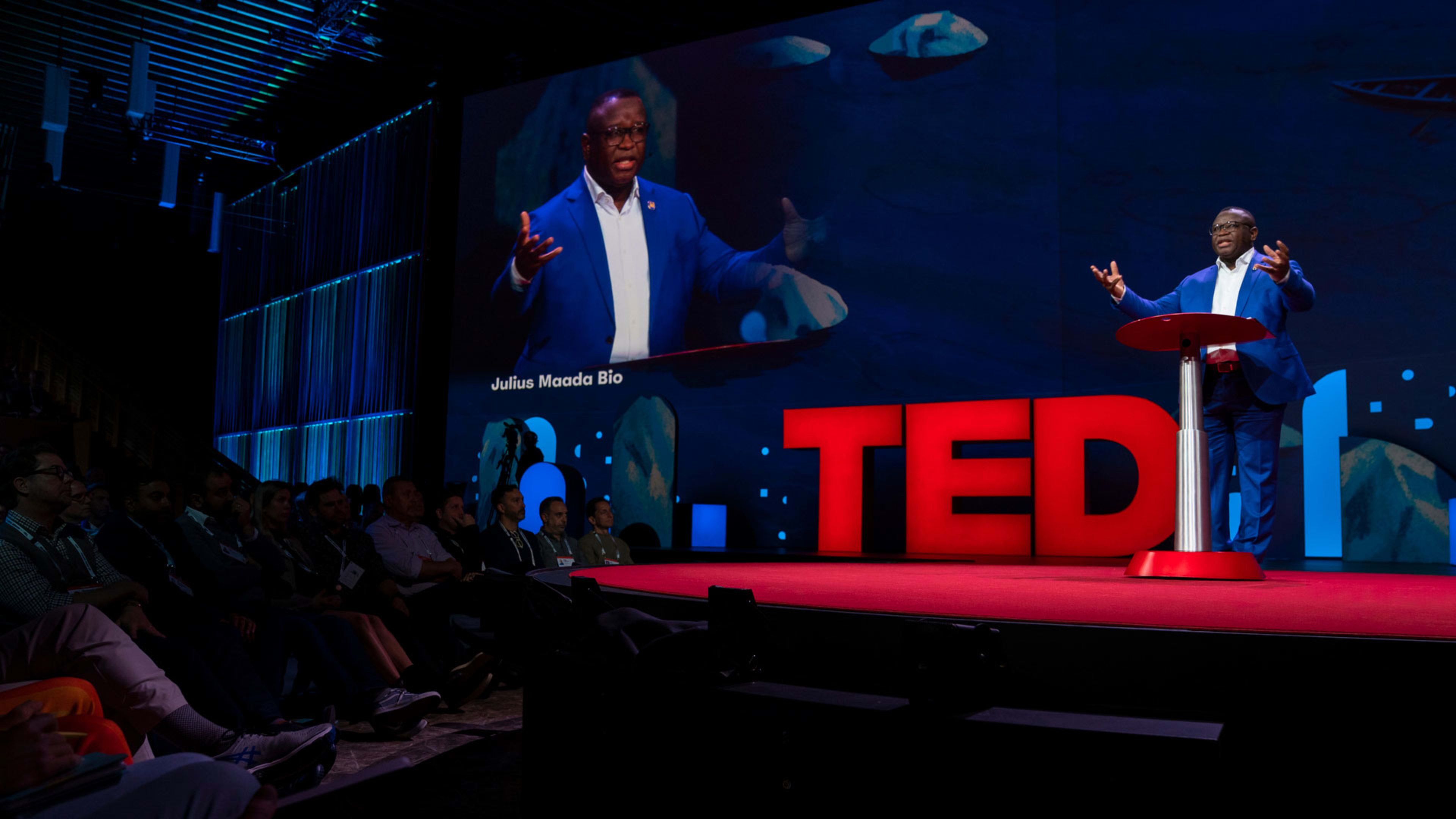Every few days, TED releases new videos featuring impressive speakers—from Pope Francis to Elon Musk to Jane Goodall to Temple Grandin—sharing world-changing ideas. For those of us sitting at home scanning through this data bank of more than 3,000 videos, these talks can prompt us to rethink some aspect of our life. Giving a TED talk helped some lesser-known speakers put themselves on the map, including startup founder Herman Narula who discussed how games can change the way we live, and filmmaker Sharmeen Obaid-Chinoy, who talked about having difficult conversations about inequality, both who spoke at this year’s conference.
TED was founded in 1984 by an architect and graphic designer Richard Saul Wurman, who wanted to bring together thinkers who could talk about the intersection of technology, entertainment, and design. (TED is an acronym of these words.) Over the past three decades, it has evolved into a 200-person media organization that rakes in millions of dollars in revenues and hosts thousands of events around the country all connected by TED’s mission, which is to share “ideas worth spreading.”But TED’s best-known event is the flagship annual conference in Vancouver, where the most high-profile speakers take to the stage.
I recently sat down with the people who curate this event. There are half a dozen specialist curators who focus on individual subject areas, like business, science, and current events. These curators find speakers in two ways: they read every one of the thousands of speaker applications that come through the TED website where people nominate others, or themselves to be speakers; but they are also tasked with scouting for talented speakers by going to conferences and asking their network for suggestions.
After all of this research, they create short lists. Helen Walters, TED’s head of curation, is tasked with making the final selection along with Chris Anderson, the head of TED. Her job is to create a well-balanced, unexpected roster of more than 80 speakers who will take to the stage.

Here are their most valuable tips.
Make the case for why you are the best speaker for this topic
As TED curators scan the nominations, the most vital piece of information they are searching for is why you, of all people, are the best person to speak about this topic. As you make the case for why you should be a speaker, you need to boldly state why you are an expert on this topic. But Walters says expertise can come in many forms.
If you don’t have traditional industry or academic experience, you might have some sort of life experience that qualifies you to talk about something. Your background and the way you see the world might allow you to address an issue in a more compelling way than any other person. “You need to explain what you can share that no one else has this particular perspective about,” says Walters. “And how you can express it in a way that will connect with a broad audience.”
If you are a business leader, don’t try to use the talk to promote your company or product. Curators are highly sensitive about people who are using the TED platform to shill for their brand. But that is not to say that a startup founder or product inventor can’t give a compelling talk. “If they can use their experience and insight to share an idea that is truly changing the conversation, we’re absolutely interested in hearing what they have to say,” says Whitney Pennington Rodgers, TED’s current affairs curator.
Pick topics that are relevant now but will live on
The next thing to figure out is why your idea is relevant at this moment in time. And the answer to this question is nuanced. Walters says that TED must achieve a delicate balance of finding talks that will be valuable in the current historical and cultural context. But they must also be enduring ideas that will live on.
Part of this is practical. TED, like many other conferences, turns talks into online videos, which will literally live on the internet forever. Conference organizers want people around the world to keep coming back to this content in the months and years to come, so it helps when the ideas are not too news specific. “We actually urge the speakers not to be too news focused,” says Walters. “We’re not interested in chasing headlines. It’s about thinking about what’s underneath the headlines and what is useful for the long term.”
But it is also important for your idea to resonate with the audience that is in the room when you’re giving your talk. This comes down to understanding the current political and cultural climate but not addressing it too specifically.
We can see this dynamic at work in the way the TED event this year tackled climate change, which is on many people’s minds. Rather than speaking about the most recent climate reports, scientist Joanne Chory talked about how to adapt plants to absorb more carbon dioxide from the atmosphere. Some people have been wondering whether they should have children with the ensuing climate crisis: Wajahat Ali made the case for continuing to have babies. “There are so many possible programs that you could put on, so the real challenge is which is the one that is going to resonate now and can contribute meaningfully to the broader discussion,” says Walters.
Your idea must be specific, digestible, and bite-size
If you believe you have a big idea to share with the world and that you are the right person to speak about it, the next challenge is to make sure you are packaging it in a way that is exciting and relevant. Walters says that when many people hear this, they think it means dumbing down their work. But this isn’t true at all, in her view. She says that the best talks come from speakers who scan the breadth of their experience, then pick the one most relevant and interesting part of it for their talk.
Walters says she has spoken to many experts who don’t feel they can distill 40 years’ worth of expertise in their field into a snappy, 20-minute talk. “The reality is that anyone can,” says Walters. “Just focus on one idea for this talk: It doesn’t mean that there aren’t other talks that you can give. That sometimes frees people to focus on one part of their work, rather than trying to give an overview of everything.”
If you’re struggling to figure out what this topic might be, Walters suggests thinking about what you talk to your partner about at the dinner table after work and what holds their interest. This is the idea you should propose in your application. “Focus on what really matters and the one really interesting thing that you have done,” Walters says.
Establish yourself by speaking at lower profile events
The TED curators encourage those who aspire to give a TED talk to try to give talks anywhere they can. These experiences will help an aspiring speaker sharpen and refine their big idea and also improve their public speaking ability.
There are also many opportunities to speak at TED-branded events beyond the most prestigious flagship conference. A decade ago, the TED organization launched TEDx, a program that allowed any person to host a local conference that has the same format as the main TED events. There are thousands of these events hosted around the world every day, and it is much easier to get a speaking slot at one of them. Colin Helms, TED’s head of media, says that curators have sometimes spotted talented TEDx speakers and invited them to the main TED stage. This happened with Brené Brown, for instance.
Every week, members of Helms’s team edit and post videos of the most compelling TEDx talks that have recently taken place, publishing them on the main website, which receives millions of visitors every month. And some of these TEDx videos have gone viral. “Sometimes, a speaker can get the kind of impact they are looking for through TEDx, without ever having to give a main TED talk at all.”
Recognize your brand’s excellence by applying to this year’s Brands That Matter Awards before the early-rate deadline, May 3.
